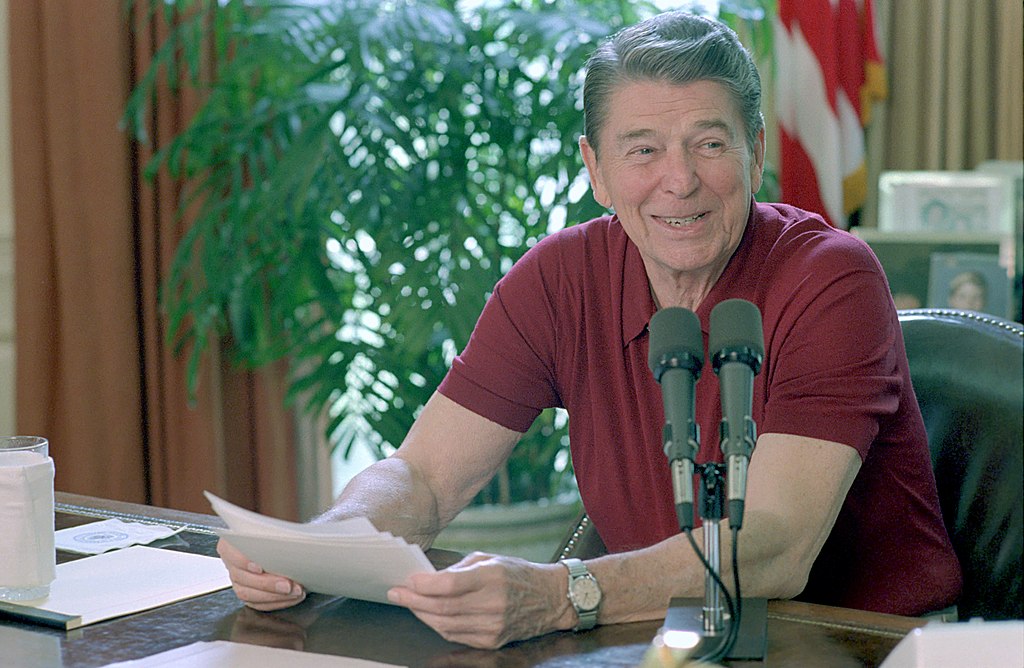**Previously recorded by Phyllis Schlafly // November 2011 **
The people who support free trade are forever invoking the name of Ronald Reagan and claiming he was a free trader. But the men who worked with him on trade issues say that is not true. For example, Ambassador Robert Lighthizer, who served as Reagan’s Deputy U.S. Trade Representative with the rank of Ambassador, said flatly that Reagan “was not a free trader.” Another Reagan appointee in his Commerce Department, Gil Kaplan, said that Reagan and his Commerce Secretary, Malcolm Baldridge, “cared a great deal about protecting and building up U.S. manufacturing and taking steps necessary to make sure trade did not hurt the U.S. jobs base.” These Reagan appointees said that Reagan took key trade actions to protect U.S. manufacturing and jobs, and they are betting that Reagan would do the same today to combat China’s currency manipulation, illegal subsidies, and other unfair trade practices. These Reagan appointees believe that conservative principles are certainly consistent with tough trade action about China.
Congressman Dana Rohrabacher, who was a speechwriter for Ronald Reagan, said that our open-market policies with China, while the Communist Party “manipulates the rules of the game,” have facilitated a transfer of wealth from the United States to China, and allowed China to grow from an insignificant country on the world stage to “a factor that can bring us down.”
The respected economist who writes in the Washington Post, Robert J. Samuelson, said our current trade with China “methodically transfers American jobs, technology and financial power to China” and we don’t get much for it. He points out that China’s and America’s goals differ radically. “China pursues a new global order in which its needs come first — one in which it subsidizes exports, controls essential imports (oil, food, minerals), and compels the transfer of advanced technology.”






